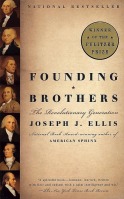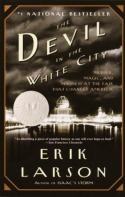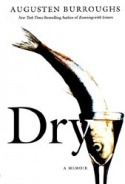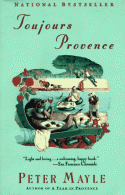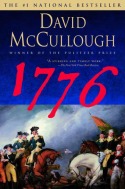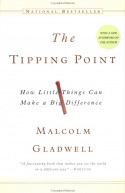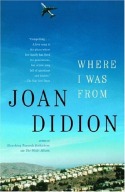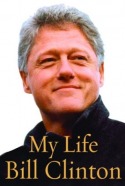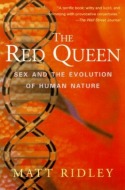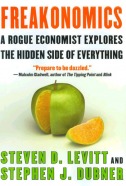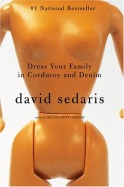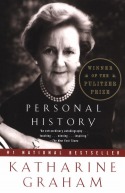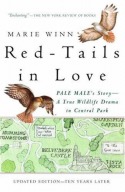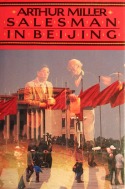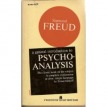Nelly Dean's Used Books
Nonfiction
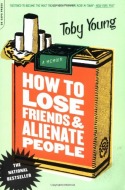
How to Lose Friends and Alienate People
by Toby Young
From Publishers Weekly
The appeal of journalist Young's memoir is his willingness to skewer himself as savagely as he does his acquaintances and colleagues. The self-portrait is rarely flattering and sometimes repellent, but carries a startling ring of truth. Young targets Manhattan's superficial social scene and gives a slashing insider's view of Vanity Fair and its parent company, Cond‚ Nast. Consumed with the desire to be "somebody," Young is hired by editor Graydon Carter and unwittingly offends everyone he seeks to impress. He learns that journalists must have "a plausible manner, rat-like cunning and a little literary ability," and he encounters a caste system so rigid that if an important editor trips and falls, etiquette dictates to leave her on the floor and walk on, rather than offer assistance or directly address her. Young's description of his efforts to crash Oscar parties is an appallingly accurate picture of wannabes whose identity depends on the celebrities they cultivate. He's amusingly perceptive in his analyses of women whose motive for marrying prominent men is to impress other women; this jealousy is brilliantly summed up by Gore Vidal's comment, "Every time a friend succeeds, I die a little." British-born Young, who has also been fired from the Times of London and the Guardian, paints Carter as a fascinatingly complex individual, capable of devastating employees or helping them face dire health problems. He also includes intriguing profiles of power couple Tina Brown and Harry Evans, and Sex and the City creator Candace Bushnell. What keeps readers on Young's side is his courage to keep fighting, even when confronted by publicist Peggy Siegal's withering line, "I have no respect for writers. They never make money. They're like poor people looking in the windows."
From Publishers Weekly
The appeal of journalist Young's memoir is his willingness to skewer himself as savagely as he does his acquaintances and colleagues. The self-portrait is rarely flattering and sometimes repellent, but carries a startling ring of truth. Young targets Manhattan's superficial social scene and gives a slashing insider's view of Vanity Fair and its parent company, Cond‚ Nast. Consumed with the desire to be "somebody," Young is hired by editor Graydon Carter and unwittingly offends everyone he seeks to impress. He learns that journalists must have "a plausible manner, rat-like cunning and a little literary ability," and he encounters a caste system so rigid that if an important editor trips and falls, etiquette dictates to leave her on the floor and walk on, rather than offer assistance or directly address her. Young's description of his efforts to crash Oscar parties is an appallingly accurate picture of wannabes whose identity depends on the celebrities they cultivate. He's amusingly perceptive in his analyses of women whose motive for marrying prominent men is to impress other women; this jealousy is brilliantly summed up by Gore Vidal's comment, "Every time a friend succeeds, I die a little." British-born Young, who has also been fired from the Times of London and the Guardian, paints Carter as a fascinatingly complex individual, capable of devastating employees or helping them face dire health problems. He also includes intriguing profiles of power couple Tina Brown and Harry Evans, and Sex and the City creator Candace Bushnell. What keeps readers on Young's side is his courage to keep fighting, even when confronted by publicist Peggy Siegal's withering line, "I have no respect for writers. They never make money. They're like poor people looking in the windows."
$
4.00
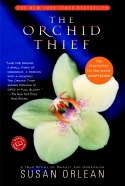
The Orchid Thief
by Susan Orlean
From Publishers Weekly
For listeners seeking to learn something new, Orlean offers a whimsical look at the sexy, mysterious world of orchids. Perfect for anyone who wants to know a little bit about a lot of things, this quirky, quintessential New Yorker story pulls back the curtain on a community of people who are driven by a passion to collect and cultivate some very exotic plants. New York journalist Orlean first learned about orchid "thief" John Laroche by reading a story about him in a local Florida newspaper. He (along with his henchmen, three Seminole Indians) had been taken to court for removing an endangered species of orchid from the state's Fakahatchee Swamp. Orlean hightailed it down to the Sunshine State to investigate and wound up immersing herself in the wacky world of orchid maniacs, intrigued more by their passion than by the orchids themselves. Myers's reading vacillates between the inspiring and the pedagogical. When reading passages about the over-the-top nature of some eccentric orchid collectors, her tone borders on the affected. But during the book's more introspective moments, as when Orlean wishes she could be as passionate about something as her subjects are about orchids, Myers turns quiet and pensive. Overall, Myers's enthusiastic performance is a perfect complement to Orlean's book and the new motion picture loosely based on it, Adaptation.
From Publishers Weekly
For listeners seeking to learn something new, Orlean offers a whimsical look at the sexy, mysterious world of orchids. Perfect for anyone who wants to know a little bit about a lot of things, this quirky, quintessential New Yorker story pulls back the curtain on a community of people who are driven by a passion to collect and cultivate some very exotic plants. New York journalist Orlean first learned about orchid "thief" John Laroche by reading a story about him in a local Florida newspaper. He (along with his henchmen, three Seminole Indians) had been taken to court for removing an endangered species of orchid from the state's Fakahatchee Swamp. Orlean hightailed it down to the Sunshine State to investigate and wound up immersing herself in the wacky world of orchid maniacs, intrigued more by their passion than by the orchids themselves. Myers's reading vacillates between the inspiring and the pedagogical. When reading passages about the over-the-top nature of some eccentric orchid collectors, her tone borders on the affected. But during the book's more introspective moments, as when Orlean wishes she could be as passionate about something as her subjects are about orchids, Myers turns quiet and pensive. Overall, Myers's enthusiastic performance is a perfect complement to Orlean's book and the new motion picture loosely based on it, Adaptation.
$
2.50
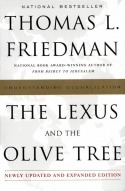
The Lexus and the Olive Tree
by Thomas Friedman
Amazon.com Review
One day in 1992, Thomas Friedman toured a Lexus factory in Japan and marveled at the robots that put the luxury cars together. That evening, as he ate sushi on a Japanese bullet train, he read a story about yet another Middle East squabble between Palestinians and Israelis. And it hit him: Half the world was lusting after those Lexuses, or at least the brilliant technology that made them possible, and the other half was fighting over who owned which olive tree.
Friedman, the well-traveled New York Times foreign-affairs columnist, peppers The Lexus and the Olive Tree with stories that illustrate his central theme: that globalization--the Lexus--is the central organizing principle of the post-cold war world, even though many individuals and nations resist by holding onto what has traditionally mattered to them--the olive tree.
Amazon.com Review
One day in 1992, Thomas Friedman toured a Lexus factory in Japan and marveled at the robots that put the luxury cars together. That evening, as he ate sushi on a Japanese bullet train, he read a story about yet another Middle East squabble between Palestinians and Israelis. And it hit him: Half the world was lusting after those Lexuses, or at least the brilliant technology that made them possible, and the other half was fighting over who owned which olive tree.
Friedman, the well-traveled New York Times foreign-affairs columnist, peppers The Lexus and the Olive Tree with stories that illustrate his central theme: that globalization--the Lexus--is the central organizing principle of the post-cold war world, even though many individuals and nations resist by holding onto what has traditionally mattered to them--the olive tree.
$
3.00
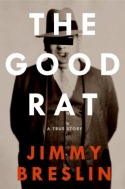
The Good Rat
From Jimmy Breslin
From Publishers Weekly
Breslin, renowned journalist and author of The Gang That Couldn't Shoot Straight, revisits a familiar wise-guy milieu in this collection of stories and anecdotes about the mob. His writing, like the Mafia itself, breezily transitions from humorous to horrifying as he regales the reader with loosely connected tales of mistaken identity, crooked cops, snitches and murder. Unlike the Sopranos and the many other touchstones of the American love affair with organized crime, for Breslin, there's good and there's evil, with little in between. As always, however, nicknames are half the fun, as Sammy The Bull Gravano, Tony Café and Gaspipe Casso take the stage in the Mafia hotspots of the five boroughs, including Greenpoint, in Brooklyn, and Ozone Park, in Queens, as Breslin delights with stories from the Mafia's heyday. Breslin's storytelling is set to the sweet background music of one of the mob's biggest canaries, Burton Kaplan, as he sings to a grand jury. The author's vernacular precision contrasts sharply with the plodding sterility of Kaplan's grand jury testimony, and as we find out, good guys can often tell ugly stories more authentically than the bad guys. The effect is tragicomic as Kaplan's testimony sounds the death knell for his associates. These stories unveil the strict code of conduct, often broken, of a dying breed. According to Kaplan, however, while illegal gambling and extortion may be waning industries, the myth of the American Mafia will never die.
From Publishers Weekly
Breslin, renowned journalist and author of The Gang That Couldn't Shoot Straight, revisits a familiar wise-guy milieu in this collection of stories and anecdotes about the mob. His writing, like the Mafia itself, breezily transitions from humorous to horrifying as he regales the reader with loosely connected tales of mistaken identity, crooked cops, snitches and murder. Unlike the Sopranos and the many other touchstones of the American love affair with organized crime, for Breslin, there's good and there's evil, with little in between. As always, however, nicknames are half the fun, as Sammy The Bull Gravano, Tony Café and Gaspipe Casso take the stage in the Mafia hotspots of the five boroughs, including Greenpoint, in Brooklyn, and Ozone Park, in Queens, as Breslin delights with stories from the Mafia's heyday. Breslin's storytelling is set to the sweet background music of one of the mob's biggest canaries, Burton Kaplan, as he sings to a grand jury. The author's vernacular precision contrasts sharply with the plodding sterility of Kaplan's grand jury testimony, and as we find out, good guys can often tell ugly stories more authentically than the bad guys. The effect is tragicomic as Kaplan's testimony sounds the death knell for his associates. These stories unveil the strict code of conduct, often broken, of a dying breed. According to Kaplan, however, while illegal gambling and extortion may be waning industries, the myth of the American Mafia will never die.
$
2.50
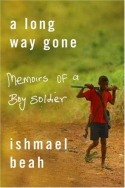
A Long Way Gone: Memoirs of a Boy Soldier
by Ishmael Beah (hardcover)
From Publishers Weekly
This absorbing account by a young man who, as a boy of 12, gets swept up in Sierra Leone's civil war goes beyond even the best journalistic efforts in revealing the life and mind of a child abducted into the horrors of warfare. Beah's harrowing journey transforms him overnight from a child enthralled by American hip-hop music and dance to an internal refugee bereft of family, wandering from village to village in a country grown deeply divided by the indiscriminate atrocities of unruly, sociopathic rebel and army forces. Beah then finds himself in the army—in a drug-filled life of casual mass slaughter that lasts until he is 15, when he's brought to a rehabilitation center sponsored by UNICEF and partnering NGOs. The process marks out Beah as a gifted spokesman for the center's work after his "repatriation" to civilian life in the capital, where he lives with his family and a distant uncle. When the war finally engulfs the capital, it sends 17-year-old Beah fleeing again, this time to the U.S., where he now lives. (Beah graduated from Oberlin College in 2004.) Told in clear, accessible language by a young writer with a gifted literary voice, this memoir seems destined to become a classic firsthand account of war and the ongoing plight of child soldiers in conflicts worldwide.
From Publishers Weekly
This absorbing account by a young man who, as a boy of 12, gets swept up in Sierra Leone's civil war goes beyond even the best journalistic efforts in revealing the life and mind of a child abducted into the horrors of warfare. Beah's harrowing journey transforms him overnight from a child enthralled by American hip-hop music and dance to an internal refugee bereft of family, wandering from village to village in a country grown deeply divided by the indiscriminate atrocities of unruly, sociopathic rebel and army forces. Beah then finds himself in the army—in a drug-filled life of casual mass slaughter that lasts until he is 15, when he's brought to a rehabilitation center sponsored by UNICEF and partnering NGOs. The process marks out Beah as a gifted spokesman for the center's work after his "repatriation" to civilian life in the capital, where he lives with his family and a distant uncle. When the war finally engulfs the capital, it sends 17-year-old Beah fleeing again, this time to the U.S., where he now lives. (Beah graduated from Oberlin College in 2004.) Told in clear, accessible language by a young writer with a gifted literary voice, this memoir seems destined to become a classic firsthand account of war and the ongoing plight of child soldiers in conflicts worldwide.
$
6.50
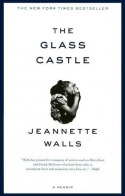
The Glass Castle
by Jeannette Walls
Amazon.com Review
Jeannette Walls's father always called her "Mountain Goat" and there's perhaps no more apt nickname for a girl who navigated a sheer and towering cliff of childhood both daily and stoically. In The Glass Castle, Walls chronicles her upbringing at the hands of eccentric, nomadic parents--Rose Mary, her frustrated-artist mother, and Rex, her brilliant, alcoholic father. To call the elder Walls's childrearing style laissez faire would be putting it mildly. As Rose Mary and Rex, motivated by whims and paranoia, uprooted their kids time and again, the youngsters (Walls, her brother and two sisters) were left largely to their own devices. But while Rex and Rose Mary firmly believed children learned best from their own mistakes, they themselves never seemed to do so, repeating the same disastrous patterns that eventually landed them on the streets. Walls describes in fascinating detail what it was to be a child in this family, from the embarrassing (wearing shoes held together with safety pins; using markers to color her skin in an effort to camouflage holes in her pants) to the horrific (being told, after a creepy uncle pleasured himself in close proximity, that sexual assault is a crime of perception; and being pimped by her father at a bar). Though Walls has well earned the right to complain, at no point does she play the victim. In fact, Walls' removed, nonjudgmental stance is initially startling, since many of the circumstances she describes could be categorized as abusive (and unquestioningly neglectful). But on the contrary, Walls respects her parents' knack for making hardships feel like adventures, and her love for them--despite their overwhelming self-absorption--resonates from cover to cover.
Amazon.com Review
Jeannette Walls's father always called her "Mountain Goat" and there's perhaps no more apt nickname for a girl who navigated a sheer and towering cliff of childhood both daily and stoically. In The Glass Castle, Walls chronicles her upbringing at the hands of eccentric, nomadic parents--Rose Mary, her frustrated-artist mother, and Rex, her brilliant, alcoholic father. To call the elder Walls's childrearing style laissez faire would be putting it mildly. As Rose Mary and Rex, motivated by whims and paranoia, uprooted their kids time and again, the youngsters (Walls, her brother and two sisters) were left largely to their own devices. But while Rex and Rose Mary firmly believed children learned best from their own mistakes, they themselves never seemed to do so, repeating the same disastrous patterns that eventually landed them on the streets. Walls describes in fascinating detail what it was to be a child in this family, from the embarrassing (wearing shoes held together with safety pins; using markers to color her skin in an effort to camouflage holes in her pants) to the horrific (being told, after a creepy uncle pleasured himself in close proximity, that sexual assault is a crime of perception; and being pimped by her father at a bar). Though Walls has well earned the right to complain, at no point does she play the victim. In fact, Walls' removed, nonjudgmental stance is initially startling, since many of the circumstances she describes could be categorized as abusive (and unquestioningly neglectful). But on the contrary, Walls respects her parents' knack for making hardships feel like adventures, and her love for them--despite their overwhelming self-absorption--resonates from cover to cover.
$
5.00
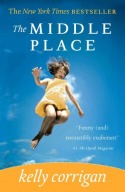
The Middle Place
by Kelly Corrigan
From Publishers Weekly
Newspaper columnist Corrigan was a happily married mother of two young daughters when she discovered a cancerous lump in her breast. She was still undergoing treatment when she learned that her beloved father, who'd already survived prostate cancer, now had bladder cancer. Corrigan's story could have been unbearably depressing had she not made it clear from the start that she came from sturdy stock. Growing up, she loved hearing her father boom out his morning HELLO WORLD dialogue with the universe, so his kids would feel like the world wasn't just a safe place but was even rooting for you. As Corrigan reports on her cancer treatment—the chemo, the surgery, the radiation—she weaves in the story of how it felt growing up in a big, suburban Philadelphia family with her larger-than-life father and her steady-loving mother and brothers. She tells how she met her husband, how she gave birth to her daughters. All these stories lead up to where she is now, in that middle place, being someone's child, but also having children of her own. Those learning to accept their own adulthood might find strength—and humor—in Corrigan's feisty memoir.
From Publishers Weekly
Newspaper columnist Corrigan was a happily married mother of two young daughters when she discovered a cancerous lump in her breast. She was still undergoing treatment when she learned that her beloved father, who'd already survived prostate cancer, now had bladder cancer. Corrigan's story could have been unbearably depressing had she not made it clear from the start that she came from sturdy stock. Growing up, she loved hearing her father boom out his morning HELLO WORLD dialogue with the universe, so his kids would feel like the world wasn't just a safe place but was even rooting for you. As Corrigan reports on her cancer treatment—the chemo, the surgery, the radiation—she weaves in the story of how it felt growing up in a big, suburban Philadelphia family with her larger-than-life father and her steady-loving mother and brothers. She tells how she met her husband, how she gave birth to her daughters. All these stories lead up to where she is now, in that middle place, being someone's child, but also having children of her own. Those learning to accept their own adulthood might find strength—and humor—in Corrigan's feisty memoir.
$
3.00
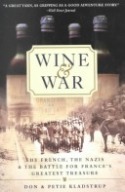
Wine and War
by Donald Kladstrup
Amazon.com Review
Liberty, equality, and fraternity are all well and good, a champion of French culture once remarked. But, he continued, what made France truly superior to its neighbors was the French passion for wine, which "contributed to the French race by giving it wit, gaiety, and good taste, qualities which set it profoundly apart from people who drink a lot of beer."The commentator may have had a point; after all, it was a well-known fact that Adolf Hitler did not like wine. Still, their leader's teetotalism notwithstanding, the Germans showed no distaste for French wine when they invaded France in 1940. Indeed, among the first acts of the occupying army was to seize great stores of wine, sending tens of thousands of barrels to the Third Reich and ordering the conversion of thousands of hectares of vineyards into war production. The Kladstrups fill their pages with memories of the wine war from both sides of the struggle, stories sometimes somber, sometimes amusing, that commemorate those "whose love of the grape and devotion to a way of life helped them survive and triumph over one of the darkest and most difficult chapters in French history."
Amazon.com Review
Liberty, equality, and fraternity are all well and good, a champion of French culture once remarked. But, he continued, what made France truly superior to its neighbors was the French passion for wine, which "contributed to the French race by giving it wit, gaiety, and good taste, qualities which set it profoundly apart from people who drink a lot of beer."The commentator may have had a point; after all, it was a well-known fact that Adolf Hitler did not like wine. Still, their leader's teetotalism notwithstanding, the Germans showed no distaste for French wine when they invaded France in 1940. Indeed, among the first acts of the occupying army was to seize great stores of wine, sending tens of thousands of barrels to the Third Reich and ordering the conversion of thousands of hectares of vineyards into war production. The Kladstrups fill their pages with memories of the wine war from both sides of the struggle, stories sometimes somber, sometimes amusing, that commemorate those "whose love of the grape and devotion to a way of life helped them survive and triumph over one of the darkest and most difficult chapters in French history."
$
3.50
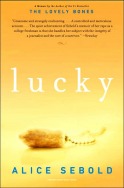
Lucky
by Alice Sebold
From Publishers Weekly
When Sebold, the author of the current bestseller The Lovely Bones, was a college freshman at Syracuse University, she was attacked and raped on the last night of school, forced onto the ground in a tunnel "among the dead leaves and broken beer bottles." In a ham-handed attempt to mollify her, a policeman later told her that a young woman had been murdered there and, by comparison, Sebold should consider herself lucky. That dubious "luck" is the focus of this fiercely observed memoir about how an incident of such profound violence can change the course of one's life. Sebold launches her memoir headlong into the rape itself, laying out its visceral physical as well as mental violence, and from there spins a narrative of her life before and after the incident, weaving memories of parental alcoholism together with her post-rape addiction to heroin. In the midst of each wrenching episode, from the initial attack to the ensuing courtroom drama, Sebold's wit is as powerful as her searing candor, as she describes her emotional denial, her addiction and even the rape (her first "real" sexual experience). She skillfully captures evocative moments, such as, during her girlhood, luring one of her family's basset hounds onto a blue silk sofa (strictly off-limits to both kids and pets) to nettle her father. Addressing rape as a larger social issue, Sebold's account reveals that there are clear emotional boundaries between those who have been victims of violence and those who have not, though the author attempts to blur these lines as much as possible to show that violence touches many more lives than solely the victim's.
From Publishers Weekly
When Sebold, the author of the current bestseller The Lovely Bones, was a college freshman at Syracuse University, she was attacked and raped on the last night of school, forced onto the ground in a tunnel "among the dead leaves and broken beer bottles." In a ham-handed attempt to mollify her, a policeman later told her that a young woman had been murdered there and, by comparison, Sebold should consider herself lucky. That dubious "luck" is the focus of this fiercely observed memoir about how an incident of such profound violence can change the course of one's life. Sebold launches her memoir headlong into the rape itself, laying out its visceral physical as well as mental violence, and from there spins a narrative of her life before and after the incident, weaving memories of parental alcoholism together with her post-rape addiction to heroin. In the midst of each wrenching episode, from the initial attack to the ensuing courtroom drama, Sebold's wit is as powerful as her searing candor, as she describes her emotional denial, her addiction and even the rape (her first "real" sexual experience). She skillfully captures evocative moments, such as, during her girlhood, luring one of her family's basset hounds onto a blue silk sofa (strictly off-limits to both kids and pets) to nettle her father. Addressing rape as a larger social issue, Sebold's account reveals that there are clear emotional boundaries between those who have been victims of violence and those who have not, though the author attempts to blur these lines as much as possible to show that violence touches many more lives than solely the victim's.
$
4.50
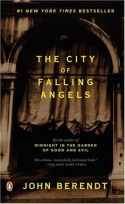
The City of Falling Angels
by John Berendt (Hardcover)
From Publishers Weekly
Berendt reads his own nonfiction exploration of the seamy side of Venice with an insider's hushed tones, chronicling the life and times of the city's movers and shakers like a naughty child sharing an overheard secret. Following up his similar study of Savannah in Midnight in the Garden of Good and Evil, Berendt has cobbled together a series of entertaining tales of the legendary canal city, ranging from the squabbles of Venetian fund-raisers to the fire in the Venice Opera House. Like a cocktail-party raconteur with a particularly juicy story to tell, Berendt twists his listeners' ears with his book's seamless stringof Venice-themed misbehavior and decadence. Only occasionally overemoting, Berendt mostly maintains the proper tone of high-society gossip delivered succinctly. Berendt's intimate voice helps to tie together the disparate strands of his sometimes-sprawling book.
From Publishers Weekly
Berendt reads his own nonfiction exploration of the seamy side of Venice with an insider's hushed tones, chronicling the life and times of the city's movers and shakers like a naughty child sharing an overheard secret. Following up his similar study of Savannah in Midnight in the Garden of Good and Evil, Berendt has cobbled together a series of entertaining tales of the legendary canal city, ranging from the squabbles of Venetian fund-raisers to the fire in the Venice Opera House. Like a cocktail-party raconteur with a particularly juicy story to tell, Berendt twists his listeners' ears with his book's seamless stringof Venice-themed misbehavior and decadence. Only occasionally overemoting, Berendt mostly maintains the proper tone of high-society gossip delivered succinctly. Berendt's intimate voice helps to tie together the disparate strands of his sometimes-sprawling book.
$
5.00
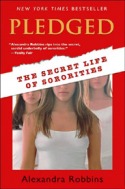
Pledged
by Alexandra Robbins
From Publishers Weekly
Robbins, who previously researched Yale's Skull and Bones Society for Secrets of the Tomb and also coauthored Quarterlife Crisis, went undercover for the 2002-2003 academic year to investigate the inner workings of "Greek" (National Panhellenic Conference) sororities. Sororities are far from anachronisms; there are presently some 3.5 million women in almost 3,000 Greek chapters on campuses across America. After the national office forbade locals from cooperating with Robbins, she disguised herself as an undergrad and found four sorority women willing to risk expulsion to help her. While Robbins structures her narrative around the year's ritual cycle-the rush, the bid, pledging, initiation, Greek Week, etc.-the timeless soap opera of sorority life occupies center stage.
From Publishers Weekly
Robbins, who previously researched Yale's Skull and Bones Society for Secrets of the Tomb and also coauthored Quarterlife Crisis, went undercover for the 2002-2003 academic year to investigate the inner workings of "Greek" (National Panhellenic Conference) sororities. Sororities are far from anachronisms; there are presently some 3.5 million women in almost 3,000 Greek chapters on campuses across America. After the national office forbade locals from cooperating with Robbins, she disguised herself as an undergrad and found four sorority women willing to risk expulsion to help her. While Robbins structures her narrative around the year's ritual cycle-the rush, the bid, pledging, initiation, Greek Week, etc.-the timeless soap opera of sorority life occupies center stage.
$
3.00
